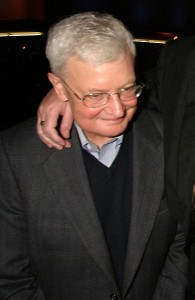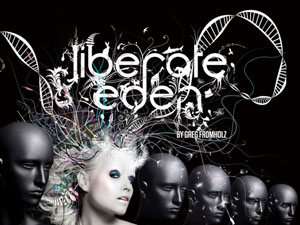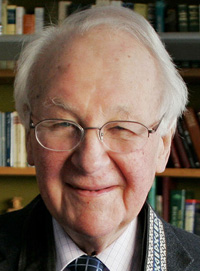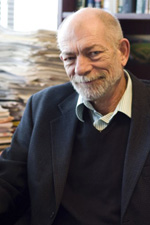Book
"I'm finding out as I'm aging that I am in love with the world. And I look right now, as we speak together, out my window in my studio and I see my trees and my beautiful, beautiful maples that are hundreds of years old, they're beautiful. And you see I can see how beautiful they are. I can take time to see how beautiful they are."
Last week, Rollins posted the introduction and first chapter of Insurrection on his website, and I devoured it. He really is one of the most challenging thinkers in the Christian world today.
 For some reason, I associate autumn with good novels.
For some reason, I associate autumn with good novels.
This makes very little sense, I realize, seeing as it's just as possible for one to stumble upon a good novel in any other season. In fact, if anything, most people are likely to associate summer with good reads.
But for me, it's all about the fall. Always has been, always will be.
 "I have no interest in megachurches with jocular millionaire pastors," Ebert writes. "I think what happens in them is sociopolitical, not spiritual. I believe the prosperity gospel tries to pass through the eye of the needle. I believe it is easier for a Republican to pass through the eye of a needle than for a camel to get into heaven. I have no patience for churches that evangelize aggressively.
"I have no interest in megachurches with jocular millionaire pastors," Ebert writes. "I think what happens in them is sociopolitical, not spiritual. I believe the prosperity gospel tries to pass through the eye of the needle. I believe it is easier for a Republican to pass through the eye of a needle than for a camel to get into heaven. I have no patience for churches that evangelize aggressively.
"I have no interest in being instructed in what I must do to be saved. I prefer vertical prayers, directed up toward heaven, rather than horizontal prayers, directed sideways toward me," he continued. "If we are to love our neighbors as ourselves, we must regard their beliefs with the same respect our own deserve."
 Could my mission really be confined to seeking the best for the children to whom I gave birth? Or, as a Christian, should I define "family" more broadly? I'd see images of women and children suffering around the world, and those puzzling verses returned to my mind. Maybe, instead of obsessing over the happiness of my babies, I should stick my head out of the window, so to speak, look around, and ask, "Who is my family?"
Could my mission really be confined to seeking the best for the children to whom I gave birth? Or, as a Christian, should I define "family" more broadly? I'd see images of women and children suffering around the world, and those puzzling verses returned to my mind. Maybe, instead of obsessing over the happiness of my babies, I should stick my head out of the window, so to speak, look around, and ask, "Who is my family?"
It didn't feel right to simply shrug my shoulders and blithely accept my good fortune as compared to that of people born into extreme poverty. I'd buy my kids their new school clothes and shoes and then think of mothers who did not have the resources to provide their children with even one meal a day. I'd wonder: what's the connection between us? Does the fact that $10 malaria nets in African countries save whole families have anything to do with my family buying a new flat-screen TV? Should it? Is there any connection between me, a suburban, middle class mom, and women around the world?
 "The man who can articulate the movements of his inner life," the late Christian apologist and author Henri Nouwen said, "need no longer be a victim of himself, but is able slowly and consistently to remove the obstacles that prevent the spirit from entering."
"The man who can articulate the movements of his inner life," the late Christian apologist and author Henri Nouwen said, "need no longer be a victim of himself, but is able slowly and consistently to remove the obstacles that prevent the spirit from entering."
Throughout the ages, how Christian believers have chosen to articulate their inner lives has had many manifestations in literature, music, architecture, and other artistic endeavors.
As a means of communicating and wrestling with his inner life -- his journey of faith -- Greg Fromholz, an American expatriate youth worker for the Church of Ireland in Dublin, wrote a book titled Liberate Eden, but traditional publishing houses found that his work was a bit too iconoclastic for their tastes.
"It is just too different to be Christian," one publisher pronounced.
My daughter attended her first day of kindergarten today. A poignant milestone dressed up in an exceptionally cute plaid jumper.
My wife and I thought we were pretty cool with it. Our daughter had attended preschool, after all, so this wasn't a major logistical change. She was excited as we dropped her off, said goodbye with a smile over her shoulder, then back to drawing in her new notebook.
We still thought we were cool with it after we signed up for PTA at the courtyard table. We ran into the local rabbi. My wife is pastor at a Lutheran church in town and they cross paths regularly. The rabbi's third child was starting kindergarten. He's an old hand at this.
I remember vividly the first time I went to a comic book shop with my mom. I'd sneaked there before. But this time was different. This time I'd come without pretense, openly confessing my love of the four-color art form. I was in the fifth grade.
While I perused the back issue bins in the middle of the shop, my mother looked from one rack to the next, her face slowly solidifying into a grimace. On one cover, a half-naked green man punched a half-naked rock man in the head. On another, a woman wearing spandex tight enough to be body paint draped herself over some sort of futuristic motorcycle. Eventually, my mother's eyes fell upon the cover of a sword-and-sorcery title near the cash register. Behind a tan, sinewy barbarian stood a harem of women, all wearing thin strips of well-placed linen. We left before I could make a purchase.
So NPR just released the results of their survey for the "Top 100 Science-fiction and Fantasy Books." It's a great list with some of my all-time favorite books on it (although I disagree with their decision not to include young adult books on the list, but that's just me). Some 5,000 books were nominated for the list, but the ones that made the top 100 were mostly ones that were more than just entertaining stories; they are the stories that mean something. Stories that through their imaginings of alternative worlds tap into the power of the prophetic to deliver the message that our world too is not absolute, but imagined and therefore capable of change.
Now, while I have complained in the past about why imaginative challenges to oppressive orders in our world only seem to happen in speculative fictions, the genre still remains my favorite -- often for that very reason. As this recent comparison of women of sci-fi vs. women of prime time shows, there are just so many more substantial ways of being in the world than the status quo generally allows for. Speculative fictions not only present the possibility that the dreams we struggle for now could someday actually be realities, they are also the prophetic voice calling us into that world.
 [Editors' note: Rev. John Stott, one of the world's most influential evangelical figures over the past half-century, died this Wednesday at age 90. Rev. Stott served as a contributing editor for Sojourners magazine, when we were known as The Post American, and wrote this article for the November/December, 1973 issue of the magazine. We will always remember Rev. Stott for his profound contributions to our community and the Church.]
[Editors' note: Rev. John Stott, one of the world's most influential evangelical figures over the past half-century, died this Wednesday at age 90. Rev. Stott served as a contributing editor for Sojourners magazine, when we were known as The Post American, and wrote this article for the November/December, 1973 issue of the magazine. We will always remember Rev. Stott for his profound contributions to our community and the Church.]
It seems to be a characteristic of the Anglo-Saxon mind to enjoy inhabiting the "polar regions" of truth. If we could straddle both poles simultaneously, we would exhibit a healthy balance. Instead, we tend to "polarize". We push some of our brothers to one pole, while keeping the other as our own preserve.
What I am thinking of now is not so much questions of theology as questions of temperament, and in particular the tension between the "conservative" and the "radical."
 With the scandal around Rupert Murdoch growing by the day, a full-fledged boycott of News Corp. has been launched on the internet, according to the Washington Post.
With the scandal around Rupert Murdoch growing by the day, a full-fledged boycott of News Corp. has been launched on the internet, according to the Washington Post.
The website Boycott Murdoch also has Facebook and Twitter pages. While the boycott has received coverage on many mainstream news outlets, it has yet to gain much traction. The Facebook page has less than 700 fans and the Twitter page is approaching only 1,000 followers. To make even a small dent in Murdoch's bottom line, the boycott will need to metastasize, and quickly.
 My office has two overflowing bookshelves, with more books stacked on top and on the windowsill. But above my desk within easy reach is a small shelf. On it I keep those books I most regularly use in thinking and writing. Here are the top 10.
My office has two overflowing bookshelves, with more books stacked on top and on the windowsill. But above my desk within easy reach is a small shelf. On it I keep those books I most regularly use in thinking and writing. Here are the top 10.
1. The Bible: What can I say about the foundational source of God's guidance in everything? I read or refer to it nearly every day. It was given to us "for teaching, for reproof, for correction, and for training in righteousness" (2 Timothy 3:16).
2. The Book of Common Prayer: I am not Anglican/Episcopalian, but there is something in the formal prayers of the traditional liturgy that resonate with my soul. On those days I really don't feel like praying or can't find the words, it's comforting to have a place to turn for inspiration.

So as I watched the final Hogwarts Express depart from Platform 9¾ in Harry Potter and the Deathly Hallows, Part II this past weekend (slightly teary-eyed, I confess), I started to wonder: What might it sound like to pray in the language of Harry Potter -- language that clearly resonates with folks around the world? Would it be cheesy? Probably. Profane? Perhaps. But I figured the God who relied on earthly parables about wineskins and fig trees to explain the Kingdom would understand.

"The mental space [books] occupied is being eroded by the thousand Weapons of Mass Distraction that surround us all," Hari told me last week. "It's hard to admit, but we all sense it: it is becoming almost physically harder to read books."
[Okay, I admit I didn't actually talk with Hari. The quote is from his newspaper column. But pop over to Twitter, and you can see how, in effect, he gave me permission to paraquote him at #interviewbyhari.]
Anyway, where was I? Oh, yeah, long-form reading. Hari quotes David Ulin, author of The Lost Art of Reading: Why Books Matter in a Distracted Time, who wrote that he "became aware, in an apartment full of books, that I could no longer find within myself the quiet necessary to read." Ulin wrote that he would sit down with a book, and find his mind wandering, enticing him to check his email, or Twitter, or Facebook. "What I'm struggling with," he writes, "is the encroachment of the buzz, the sense that there's something out there that merits my attention."

- How do you like your chocolate chip cookies? (Personally, I prefer thick, chewy, and not too sweet.)
- Are you a stay-at-home dad?
- Learn more about new media and faith.
- Religious groups are part of the suit against Alabama immigration law (hat tip: CCIR).
- The changing face of AIDS.

The other day I read some interesting statistics about how social media is shaping our lives . It is interesting to see the response to this and recognize the different ways in which we grapple with deluge of social media in relation to our faith. There are lots of resources emerging to help us maintain a strong and vibrant faith in the midst of this. I wanted to highlight a couple that I have found very useful
